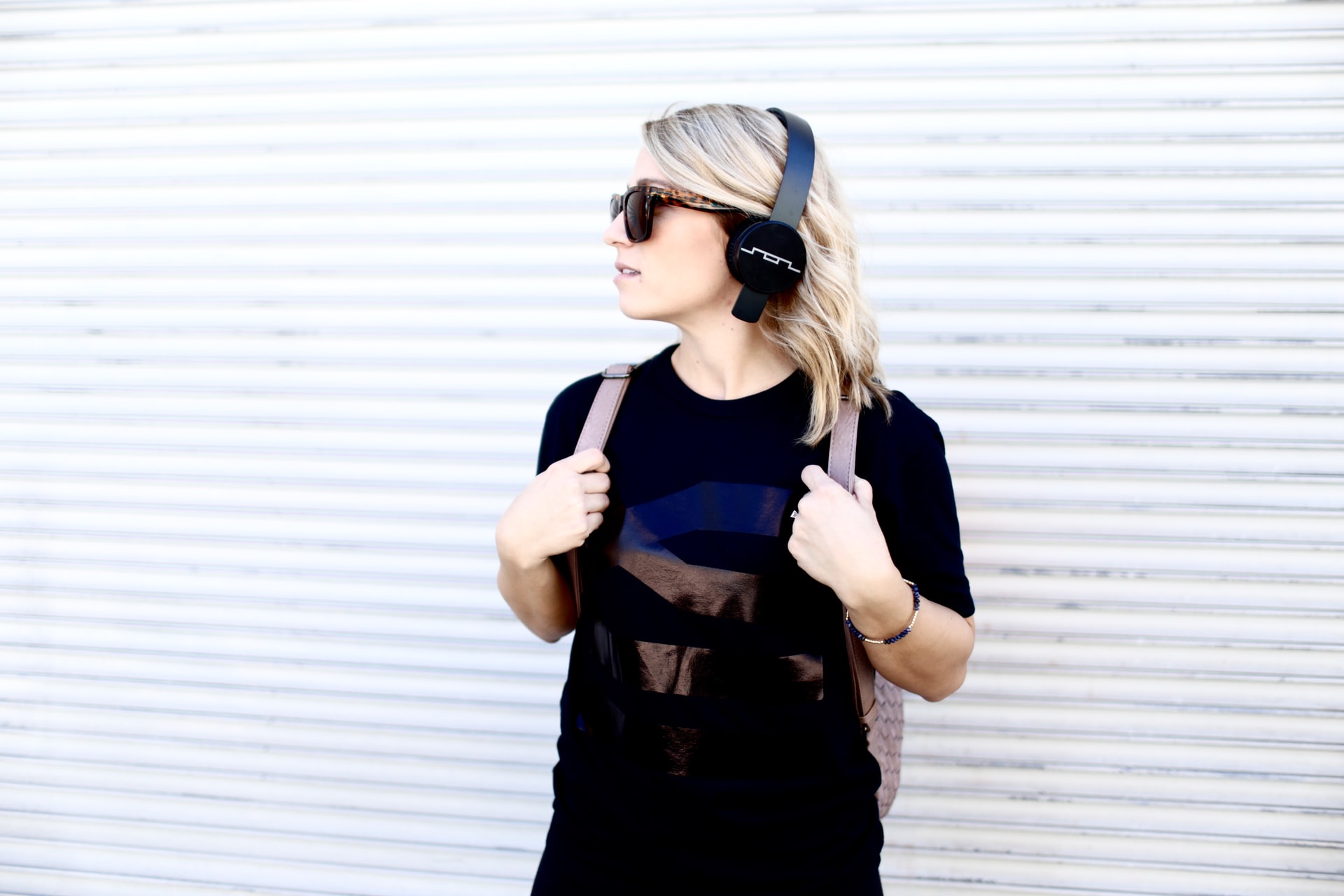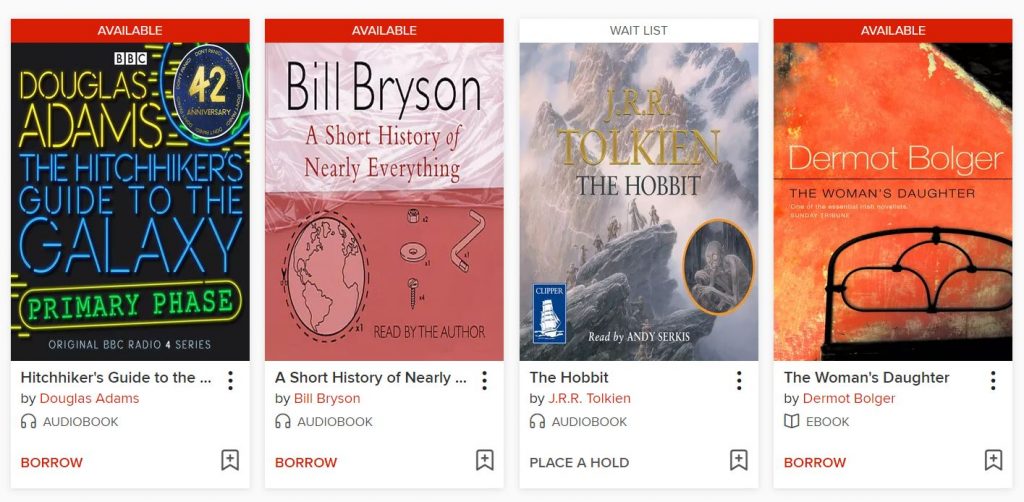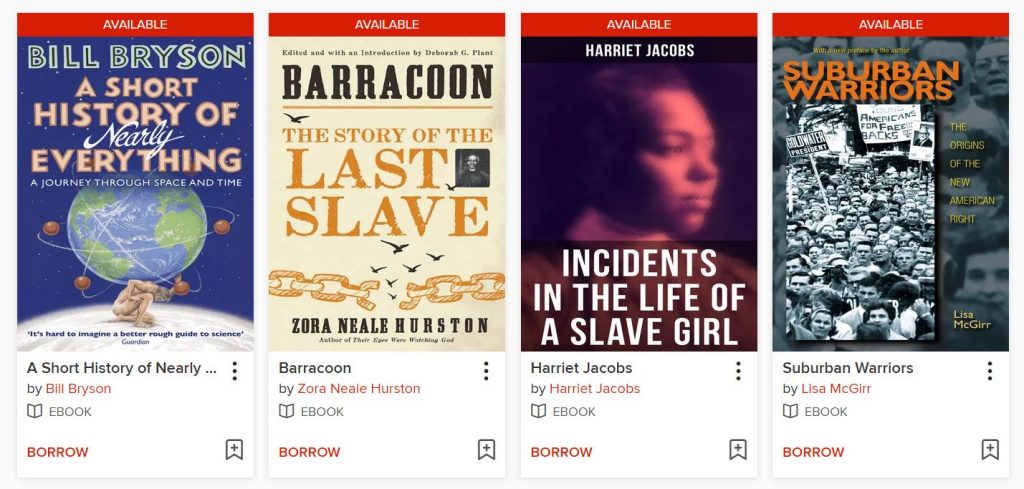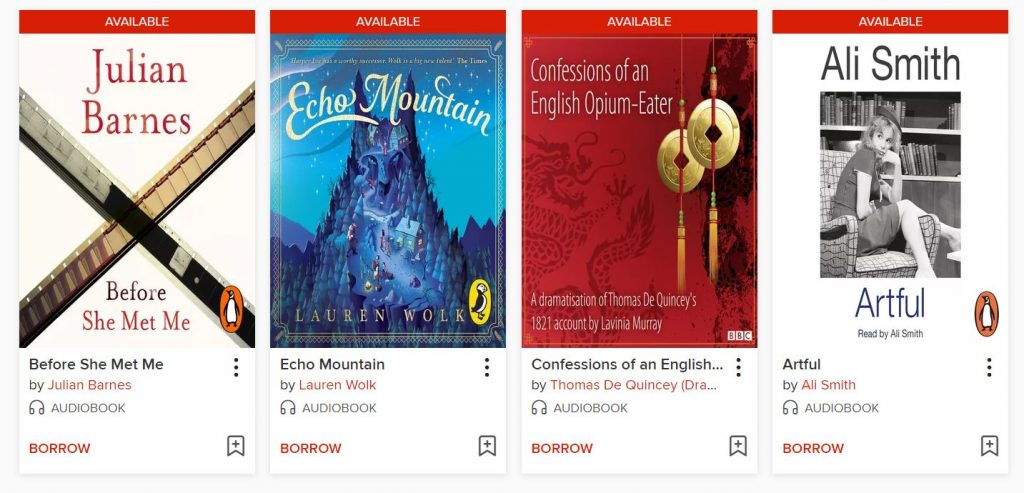Libby is an ebook app which is sweeping the nation. Read second year history student, Rhiannon Limbert’s review of the product and how it can help you in your studies.
I chose to review Libby and how it would benefit the University and its students as I think many people will enjoy using this new service. Libby is an e-book and audiobook app, although new formats are coming on stream, which means there are multiple benefits. I am going to discuss the pros and cons of Libby from a consumer and a students’ perspective. This is important as the Libby app has many benefits which are different depending on the type of work you are doing and what you need it for.
Lots of choice
The first pro is that it is easy to link multiple library cards to Libby, and also transfer to other devices, so your devices are linked. Doing this, meant that I had access to the e-books, from my local county library service and also the CCCU overdrive collection, both on my phone when I was out and about listening to an audiobook, and on my tablet whilst sitting on the couch reading an e-book. It also meant that whichever device I used, the book updated to the place I was when I left off, even when changing devices. This means that you can use it no matter where you are. A con, however, is that there is only a certain amount of each e-book and the more popular books have large waiting lists (particularly for the public library titles) with some having over six week wait times. This means that those books are hard to gain access to and some of the waiting lists seemed excessive (although this can be the same for print titles). However, the fact is, it is free and can be used on multiple devices and with multiple libraries, meaning that you have wide access to many books anywhere. You can find out how you can join Canterbury public library here.
Using e-books in your studies
Whilst most of the titles are fiction, Overdrive also has a wide range of non-fiction meaning they can be used for leisure, study and research. These e-books allow you to add notes to pages and have a contents page so you can jump to whatever chapter you need, this means you don’t have to flick through pages to find specific chapters, thus cutting down on the time it takes to research. Occasionally, I got lost and had to restart the chapter again. I also found that I clicked through pages while trying to get the menu in the book and went off track. I also couldn’t seem to get the book to work correctly on my phone, as it seemed to want me to read with two pages like a book which made the words too small, but the CCCU library has now produced a guide to Overdrive for new users which has helped enormously. A con of the e-books is that some may be difficult to reference due to the fact that you can edit the font size in certain e-books. However, Cite them Right provides advice on how you can cite e-books with no page numbers.
Using the audiobooks
The pros of audiobooks are that you can listen to them out and about, which means they can be listened to when travelling to the university. This is important as it allows people to have texts available whenever they need them. It also means you can listen to books when busy and do work while listening to the book. Another plus is that there are a wide range of audiobooks and they are often read by well-known actors. Audiobooks can be useful for language learners as “listening skills are imperative to reading comprehension”[1] this shows the importance of audiobooks, as comprehension is a big part of understanding and learning for any age.
A problem I found with the audiobook I listened to, is that it was too slow and had to be speeded up. However, when I did this, I found the voice was distorted with the speed, which meant I either had to listen slowly or with a distorted voice. This, however, may have just been the book I was using, as many different people read audiobooks and the pace will be different.
My conclusions
Although personally I prefer paper books, I found Libby fairly easy to use. I particularly liked the audiobooks as it felt like watching Netflix or listening to music. I will continue to use Libby as a way to read books that I don’t have access to at home or in libraries near me, and will enjoy listening to books while walking about or walking to work.
Rhiannon Limbert is going into her third year. She loves history, reading and old horror movies.
Featured Image: Photo by Chichi Onyekanne on Unsplash. Screenshots of Libby accessed and captured November 2021.
1 – Campbell, Robyn. “The Power of the Listening Ear.” The English Journal, vol. 100, no. 5, 2011, pp. 66–70. JSTOR, www.jstor.org/stable/23047805. Accessed 11 May 2021.
 Library
Library Michelle Crowther
Michelle Crowther 2963
2963





